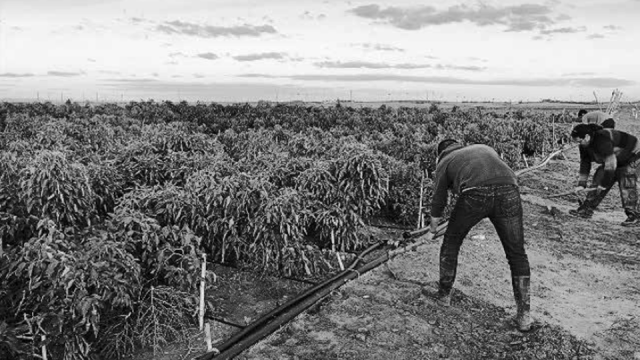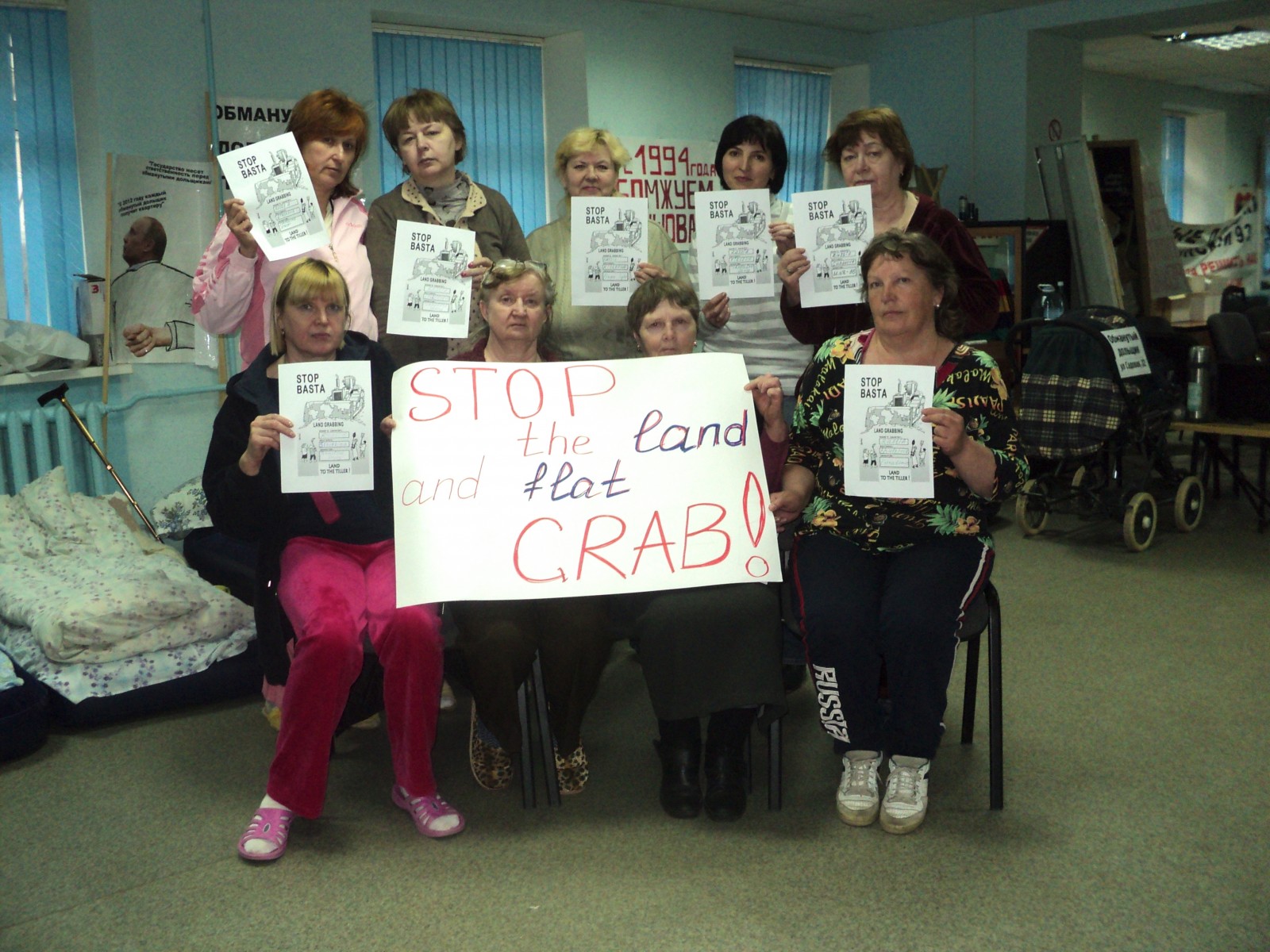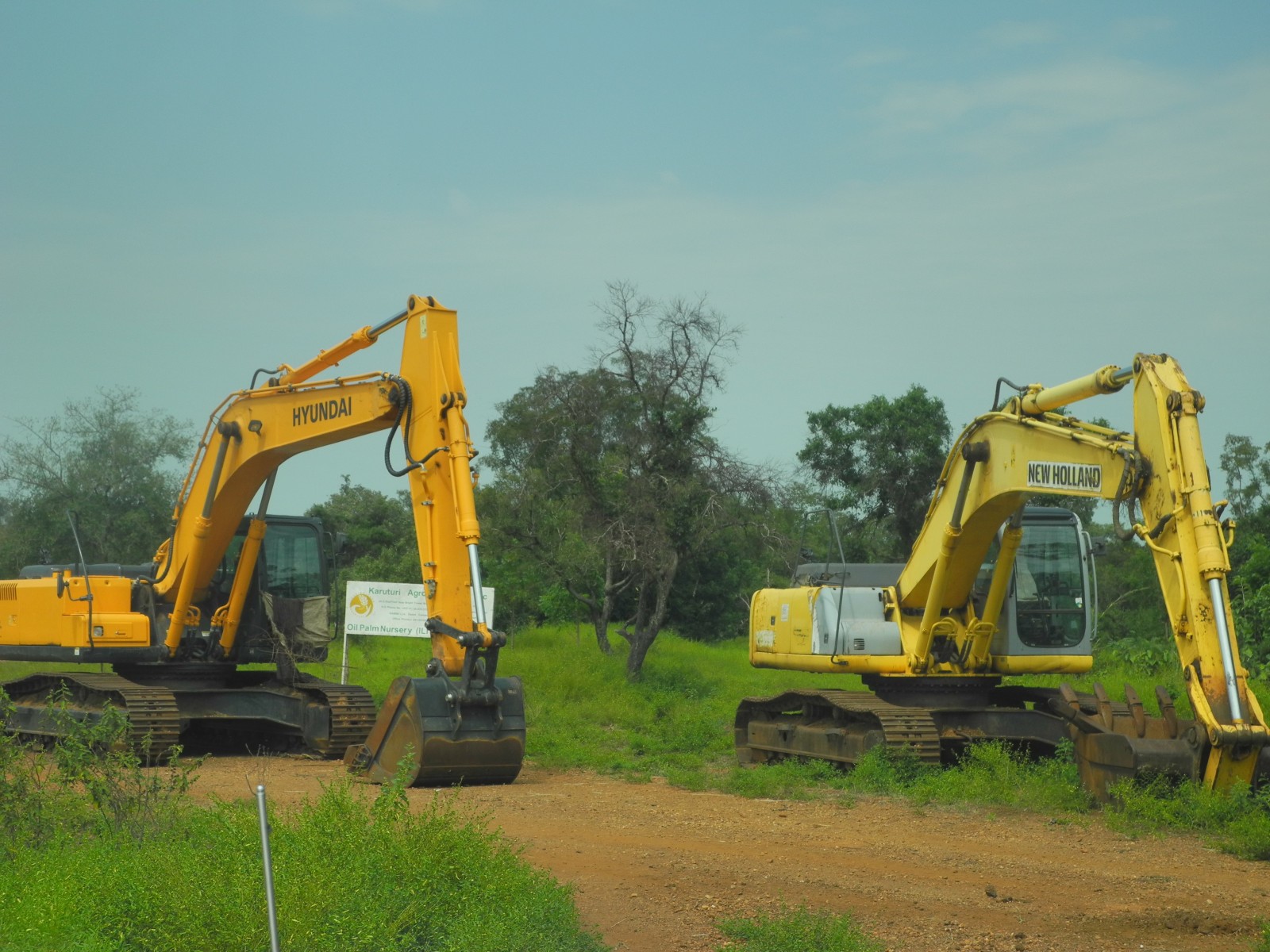
Land grabbing is widely assumed to be happening only in the global South, but an in-depth analysis by a team of researchers shows that land grabbing is also expanding into Europe.
The report, involving 25 authors from 11 countries, reveals the hidden scandal of how a few big private business entities have gained control of ever-greater areas of European land.
It exposes how these land elites have been actively supported by a huge injection of public funds – at a time when all other public funding is being subjected to massive cuts. While some of these processes – in particular ever-increasing land concentration -- are not new, they have accelerated in recent decades in particular in Eastern Europe.
They have also paved the way for a new sector of foreign and domestic actors to emerge on the European stage, many tied into increasingly global commodity chains, and all looking to profit from the increasingly speculative commodity of land.
Among other findings, the report reveals:
1. Increasing land concentration
Land ownership in Europe has become highly unequal reaching, in some countries, proportions similar to Brazil, Colombia and the Philippines – all notorious for their unequal distribution of land and land-based wealth. While in the EU there are some 12 million farms, the large farms (100 hectares and above) that only represent 3 percent of the total number of farms, control 50 percent of all farmed land.
This concentration of land ownership started decades ago, but has accelerated.6 In Germany, for example, a total of 1,246,000 holdings in 1966/67 shrunk to just 299,100 farms by 2010. Of these holdings, the land area covered by farms of less than 2 hectares, shrunk from 123,670 hectares in 1990 to a mere 20,110 hectares in 2007, while farms of 50 hectares and larger expanded in area from 9.2 million hectares in 1990 to 12.6 million hectares in 2007.7
In Eastern Europe, the concentration of land ownership has been particularly marked since the collapse of the Berlin Wall. Many farmers were bankrupted when their countries entered the EU and highly subsidized agricultural products began flooding their markets. In the first six years, the majority of small farmers were not even eligible to apply for E.U. agricultural subsidies which fueled sales of farms. Here a new elite group of speculators/investors have succeeded in capturing vast tracts of land.
Public money, through subsidies paid under the Common Agricultural Policy, supported this concentration of land and wealth. In Italy, for example, in 2011, 0.29 percent of farms accessed 18 percent of total CAP incentives, and 0.0001 of these (that is 150 farms) cornered 6 percent of all subsidies. In Spain in 2009, 75 percent of the subsidies were cornered by only 16 percent of the largest farmers. In Hungary in 2009, 8.6 percent of farms cornered 72 percent of all agricultural subsidies.
Currently, the CAP subsidy scheme is being changed to subsidies per hectare of farm land. Unintended consequences of this might be that it further fuels the European land grab in the Eastern and Mediterranean parts of Europe, as it will marginalize small farms, and continue to block entry by prospective farmers.
2. Creeping land grabbing
Alongside land concentration, new actors have arrived to grab land especially in Eastern Europe. The report highlights cases of Chinese companies in Bulgaria undertaking large-scale production of maize, of Middle Eastern companies in Romania embarking on large-scale production of grains, and of European companies involved in grabbing up land in many European countries for a variety of agricultural and non-agricultural purposes.
Just like their counterparts in Ethiopia, Cambodia or Paraguay, all these large-scale land deals are being carried out in a secretive, non-transparent manner. As elsewhere, the “grabbers” are foreign and domestic companies, with the apparent participation of regional European capital, including both traditional agribusiness controlling commodity chains and finance capital including pension funds – not unlike in Latin America or Southeast Asia.
This has further aggravated the already concentrating trend in land control. Iin Ukraine the 10 biggest agroholdings control about 2.8 million ha, while some oligarchs own up to several hundreds of thousands of hectares each. In Serbia the four largest Serbian landowners together allegedly control more than 100,000 ha.
Land is being grabbed across Europe for multiple reasons: production of raw materials for the food industry dominated by transnational companies, extractive industry, bio-energy, “green grabs” such as vast solar greenhouses, urban sprawl, real estate interests, tourism enclaves, and other commercial undertakings.
In France, for example, each year more than 60,000 ha of agricultural land are lost to make space for roads, supermarkets and urban growth or leisure parks. These are often more scattered cases of usually smaller land deals. But they add up, and also tend to encroach into the most fertile and productive agricultural lands.
3. Blocking entry to prospective (young) farmers
This is an unprecedented dynamic of land grab and land concentration. The structure of CAP subsidy schemes and accompanying national policies do not really contribute to the entry into farming by prospective farmers, most of them young people. This was already a serious issue before. This issue has become even more of a problem in the midst of increasing land concentration and creeping land grabbing.
The current and planned CAP subsidy schemes are likely to solidify the barrier to more democratic access to land and entry to farming by young people. Access to land is a basic condition to achieve food sovereignty in Europe.
If there is one positive insight from this is the fact that across Europe there are so many young people who are willing and eager to take up farming – despite the popular belief that young people are no longer interested in agriculture. This growing popular interest among young people to take up farming is partly provoked and inspired by increasing interest in healthy, local food and sustainable agriculture by young people.
Yet the harsh reality of European agricultural policies means that these future farmers are either losing small plots of land or being denied entry. The winners of the growing land concentration and creeping land grab are large industrial farm-holdings, clinging to a system of agriculture that has significant environmental and social costs.
4. Growing and spreading farmer’s and peoples struggles
Fortunately the hope for halting and reversing the European land grab lie with many of these same social groups that are getting dispossessed and marginalized. All of the cases examined in the study highlight how new movements, cross-class, rural and urban, and from different occupations, are emerging in Europe. Their actions, as in many regions of the world, are both defensive against land concentration and land grabs, but also pro-active seeking to occupy land, advance alternatives.
The study includes the case of the community of Narbolia, Sardinia mobilizing against the use of prime agricultural land for massive solar greenhouse projects, and the case of opposition to the Notre Dames des Landes airport project in Nantes in France.
In terms of pro-active struggles, it highlights the case of SOC in Andalusia, where landless peasant farmers are collectively occupying land and cultivating it using ecological farming systems, and SoLiLA in Vienna where young people are coming together to “squat” fertile urban land for community supported agriculture and city food gardening and thus preserve it from conversion to urban commercial projects.
These struggles are transforming both urban and rural spaces into new battlegrounds in the struggle for control of the direction of European agriculture.
Conclusion
A study of Europe's land dynamics points forcefully to the need to rethink the conventional “Global South-centric” view of contemporary land issues. It shows first, land grabbing is critical issue today but is not the only urgent and important land issue in the world today; the generic issue of land concentration is just as urgent and important and probably even more prevalent than the former, at least in the European context.
Second, it reveals that land concentration and land grabbing do not occur only in developing countries in the South; in fact, both are underway in Europe today.
Third, as is happening elsewhere in the world, it points to the hope inspired by people’s struggles against land concentration and land grabbing unfolding in Europe. Their struggles underscored the urgent need for a truly transnational political struggle against contemporary enclosures of one of humanity's most critical resources, the land we live on.
Recommendations
In light of the findings of this report, the European Coordination Via Campesina, supported by various organizations directly and indirectly involved in this report, put forward a set of demands addressed to national and EU governmental bodies to address the triangular issues of land concentration, land grabbing and barriers to entry to farming. Our main demands are:
Land should regain importance as a public good. We must reduce the commodification of land and promote public management of territories. Priority should be given to the use of land for smallholder and peasant agriculture and food production against the simple private property commercial interests.
Access to land should be given to those who work it (or: those who want to work it in a socially and ecologically acceptable way) [this leaves the possibility for young people to enter the land open, and it simultaneously distances from those who currently control and ‘work’ fast track of land. It also links with the statement that follows here below, i.e. that redistributive land policies are needed] .
1. Stop and reverse the trend of extreme land concentration and commodification.
• Carry out redistributive land policies (land reform, land restitution, affordable land rentals, and so on) in areas of concentrated ownership.
• Recognize historical use rights and communal land systems
• Implement policies to support transformation of industrial farms into small family/peasant farms/food sovereignty projects, including urban agriculture.
2. Stop land grabbing!
• Ban on all investors and speculators (companies, banks/ governments) that are operating, and /or grabbing land, in Europe and elsewhere in the world
• Create a public databank/tracking system of the transactions of governments and companies engaged in land grabbing
3. Assuring access to land for farming as the basis to achieve food sovereignty specially for young people
• Abolish the patriarchal system of land possession or heritage and promote policies of positive discrimination to assure access for women
• Create public management frameworks or reform existing ones (e.g. Safer, France) to facilitate the access of youth, landless people, also for other resources such as water.
• Strengthen or create the participation of local communities in decision making on land use
• Develop legal frameworks for cooperative-type farms and co-ownership arrangements that would improve the situation of women in land ownership and make it easier for young people to set up a farm.
• Change the installation and renting criteria and adopt policies to support sustainable small farm/peasants projects (e.g. leave minimal surface condition for subsidies).
• Push for the adoption and democratic application of the Tenure Guidelines on responsible governance of land (UN) in Europe within a food sovereignty framework
• Support to concrete actions of recovering land (e.g. occupation of industrial zones)
• Prioritize the use of land for food versus agrofuel production and other commercial energy uses, extractive industries, useless megaprojects, in Europe and elsewhere in the world
3 WAYS TO SHOW YOUR SUPPORT
- Log in to post comments













